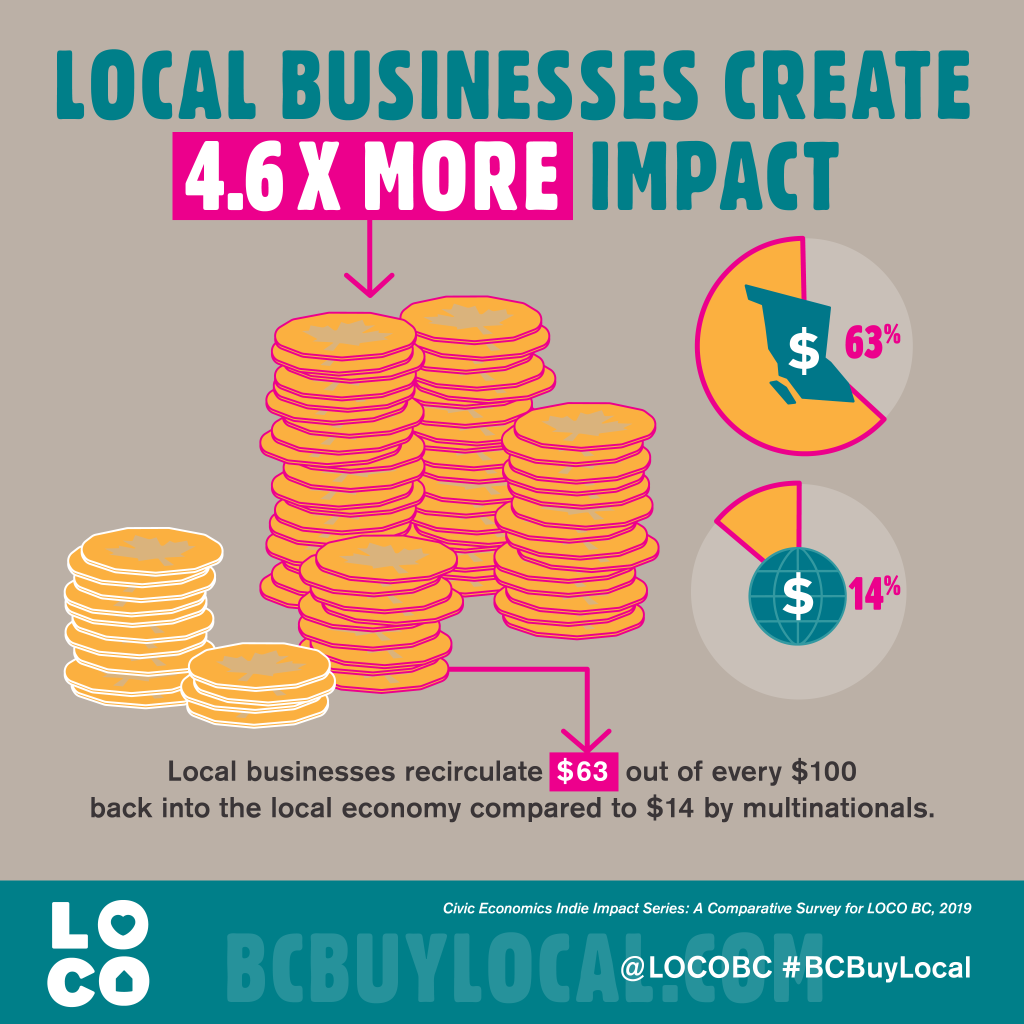What would it take for British Columbia to keep another $4.3 billion in its economy? Try changing one thing: where you tap your card.
Every time you pay, you cast a vote for the kind of community you want. An analysis by LOCO BC estimates that if B.C. shoppers shifted just 10 percent of their spending from multinational chains to independent, local businesses, roughly $4.3 billion more would stay in the province and about 14,150 jobs could be supported. That is a province-sized difference made by millions of small choices.
Why This Matters
Independent businesses keep a far larger share of each dollar circulating locally. LOCO BC’s headline numbers show independent firms can retain as much as 63 percent of revenue in B.C., compared with about 14 percent for multinational retailers. Other studies reach similar estimates. Those gaps compound quickly across millions of transactions.
How Local Spending Multiplies Value
When you spend at a local business, the same dollar is more likely to pay a local worker, buy supplies from a nearby vendor, and end up donated to a local charity. The result is more payroll, more local procurement, and more community giving. LOCO BC’s modelling suggests that a modest, measured shift across many categories produces outsized results, because the retained dollars circulate again and again inside communities.
It’s Not an All or Nothing Solution
Price and convenience matter. Recent consumer surveys suggest many Canadians say they will pay a small premium to support local, but not everyone can. The modelling does not argue for replacing every chain purchase. It models a realistic, partial shift: think one in ten purchases, not an all or nothing switch. The net effect will also vary by industry and by region; urban centres and remote towns will see different outcomes.
What it Looks Like In Practice
When more money stays local, local employers can raise payrolls, municipal procurement can favor nearby suppliers, and charities see steadier support. Those building blocks help ease pressure on provincial budgets strained by rising program costs. In practice this means stronger neighbourhood economies and greater resilience when provincial revenues face shocks.
A Small, Measurable Start
Adding $4.3 billion to BC’s economy starts with many everyday choices. The next time you reach for your wallet, consider whether one in ten choices this month could flow to an independent B.C. business. That modest change scales. Over time it buys jobs, strengthens local supply chains, and leaves more resources inside the communities we rely on.




